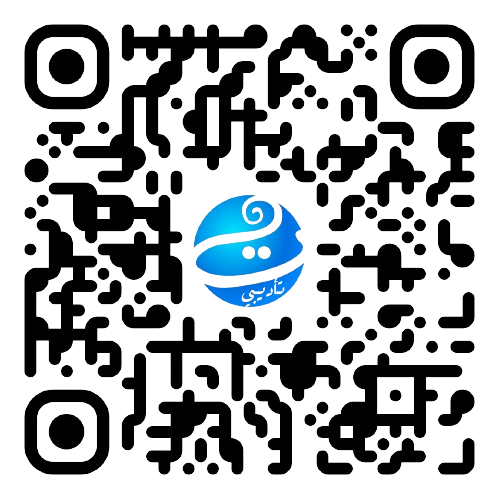Simulation Learning in Economics Education: Empowering Critical Thinking and Rahmatan Lil Alamin Value
DOI:
https://doi.org/10.28918/tadibia.v3i2.1190Keywords:
Critical thinking, Rahmatan Lil Alamin value, simulation methodAbstract
This study explores the application of critical education paradigms, particularly Rahmatan Lil Alamin, to enhance critical thinking skills in economics subjects through simulation learning methods. Critical education aims to challenge unjust social structures and systems by cultivating critical consciousness and empowering individuals. Simulation learning is employed as a means to promote active student engagement and stimulate critical thinking. Drawing upon literature reviews highlighting the effectiveness of simulation methods in improving critical thinking, the study investigates the impact of these methods on high school students' critical thinking skills. The literature underscores the importance of interaction, communication, and role-playing in the learning process, aligning with the goals of critical education. The research delves into understanding how simulation methods can enhance critical thinking skills in economics subjects and the effects of such methods on student learning. The study is conducted in a Madrasah Aliyah Negeri in Batang, Indonesia, where learner-centered education is practiced, providing an ideal setting for implementing simulation-based critical education. Data collection methods include observation, interviews with teachers and students, and documentation analysis. The research employs a qualitative case study approach to gather rich data and insights into the implementation of simulation methods in economics education. Preliminary findings indicate that the simulation method fosters active participation, stimulates critical thinking, and raises awareness of real-world societal issues. Students engage in respectful discussions, considering diverse viewpoints and demonstrating tolerance, aligning with the Rahmatan Lil Alamin concept.
References
Al-Hussayn, M. S. (1999). Criticism of the Education System (Indonesian ed.). Bandung: Pustaka Kencana.
Bizzell, P. (2014). Classroom authority and critical pedagogy. Oxford Journals, 3(4), 847-863.
Fakih, M. (2001). Popular Education: Building Critical Awareness (Indonesian ed.). Yogyakarta: Insist.
Galaresa, A. V., & Sundari, S. (2019). The use of simulation methods in improving critical thinking: Literature review. Junar Nursing Research, 5(1), 17-25. https://doi.org/10.32660/jurnal.v5i1.332
Hasbullah. (2021). Teacher education curriculum: Simulation method in learning during a pandemic. Adaara: Journal of Islamic Education Management, 11(2), 155-162.
Lubis, A. Y. (2006). Deconstruction of Modern Epistemology (Indonesian ed.). Jakarta: Pustaka Indonesia Satu.
Maksum, A. (2011). Pluralism and Multiculturalism: New Paradigms of Islamic Education in Indonesia (Indonesian ed.). Malang: Aditya Media Publishing.
Rahardjo, T. (2010). Popular Education: Building Critical Awareness (Indonesian ed.). Yogyakarta: Insist Press.
Raihani. (2020). A model of Islamic teacher education for social justice in Indonesia: a critical pedagogy perspective. Journal of Indonesian Islam, 14(1), 163-186.
Rashid, M. M. (2016). Islam Rahmatan Lil Alamin perspective KH. Hashim Muzadi. Episteme, 11(1), 94-116.
Ramadhansyah, M., & Ali, M. (2019). Critical education in the view of mansour fakih. Iseedu, 3(1), 150-165.
Sidi, I. D. (2001). Towards a Learning Society: Initiating a New Paradigm of Education (Indonesian ed.). Jakarta: Logos Discourse Science.
Setiawan, E., Liliasari, & Rohman, I. (2014). Development of high school students' critical thinking skills on the topic of electon domain theory through interactive simulation of PHET molecule shapes. Journal of Mathematics and Science Teaching, 19(2), 257-265. https://doi.org/10.18269/jpmipa.v19i2.36187
Subakhan, E. (2016). Critical Education: A Critique of the Praxis of Neoliberalization and Standardization of Education (Indonesian ed.). Yogyakarta: Ar-Ruzz Media.
Taufikurrahman. (2022). Islamic values of Rahmatan Lil Alamin . Eduthink: Journal of Islamic Thought, 3(2), 102-117.
Zaprulkhan. (2015). Philosophy of Science: A Contemporary Analysis (Indonesian ed.). Depok: Rajagrafindo.
Downloads
Published
How to Cite
Issue
Section
License
Copyright (c) 2023 Imam Farid

This work is licensed under a Creative Commons Attribution-ShareAlike 4.0 International License.



















